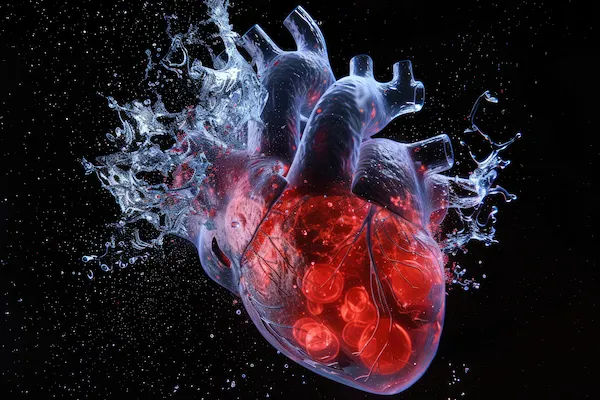- Male
- 28 Years
- 22/01/2025
I'm 28 and recently got a job at a refinery. During my medical checkup, they found something called Left Anterior Hemi Block in my ECG. I'm a bit concerned since my health history has always been good. Everything else like my BP, sugar levels, eyes, ears, and chest X-rays came out normal. Should I be worried about this, or is it not that serious?
Answered by 1 Apollo Doctors
Left Anterior Hemiblock (LAH) is a conductive abnormality in the heart's electrical system, which often does not cause symptoms and is not necessarily dangerous. It can be more significant in the presence of other heart conditions, but in many cases, it's a mild and isolated finding. It's essential to consult a cardiologist for further evaluation and to ensure that no underlying heart disease is contributing to the condition.
Dr. Anshul Suggests...
Consult a Cardiologist
Answered 04/07/2025
0
0

More Cardiology Health Queries
View allI'm Priyanka, and I'm a bit concerned about my health. My TMT test showed inconclusive results regarding ischemia. I'm also looking at my lipid profile, which shows total cholesterol at 172, triglycerides at 172, HDL at 42, and LDL at 95.5. Could you help me understand what these numbers mean for my health and suggest any steps I should take? I've been feeling unwell, and I'm not sure what to do next.
Hello Priyanka, based on your test results and symptoms, it seems like you may be experiencing some cardiovascular issues. I would recommend starting treatment with a statin medication to help lower your LDL cholesterol levels and reduce the risk of cardiovascular events. You can start taking Atorvastatin 20mg once daily to help improve your lipid profile and reduce the risk of ischaemia. Additionally, you should focus on lifestyle modifications such as a healthy diet, regular exercise, and stress management to further improve your overall cardiovascular health.
Answered by 1 Apollo Doctors
I'm worried about my father. He had angioplasty just yesterday, and now he's got this pain running from the middle of his leg down to his ankle. Is that something to be concerned about, or is it normal after angioplasty?
Pain from the mid-leg to the ankle after an angioplasty could be due to several factors, such as the site of catheter insertion (usually the femoral artery in the groin) or the use of a vascular closure device. While mild discomfort and bruising can be normal, significant pain should be evaluated to rule out complications like hematoma, arterial injury, or deep vein thrombosis (DVT). Please consult your father's healthcare provider promptly to assess the cause of the pain and ensure appropriate management.
Answered by 1 Apollo Doctors
I'm feeling some itching on the inside of my left chest area for the last three days, and I'm worried if it might be something related to my heart. Is this something I should be concerned about?
cardiac markers and ecg is advised tothe patient. Advised tab levocetrizine ,orally at night for 5 days.
Answered by 1 Apollo Doctors
Disclaimer: Answers on Apollo 247 are not intended to replace your doctor advice. Always seek help of a professional doctor in case of an medical emergency or ailment.


.webp)
